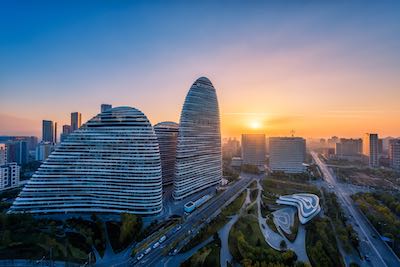When Philip Sheldrake talks about the spiritual city, he’s referring not simply to its sacred buildings: its mosques, churches, and temples. He means the city itself, in its entirety, where inhabitants shape their identities, create a sense of place, and have a personal and collective history. Sheldrake is the author of "Spaces for the Sacred: Place, Memory, and Identity" and an inaugural visiting fellow with the Georgetown Global Cities Initiative. Here, he talks with Uwe Brandes, faculty director of Georgetown’s Master's in Urban & Regional Planning, about the importance of cities and their vibrant, singular, and sacred spaces.
